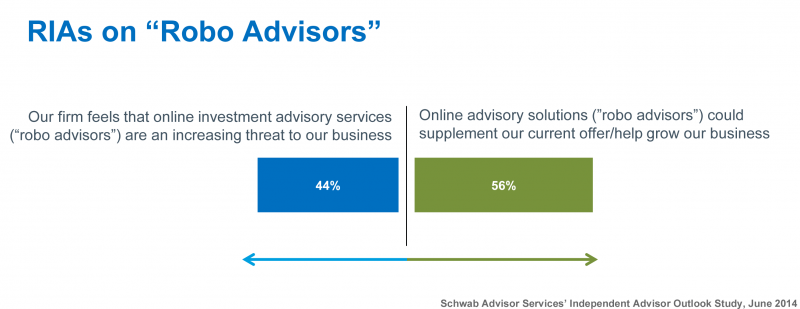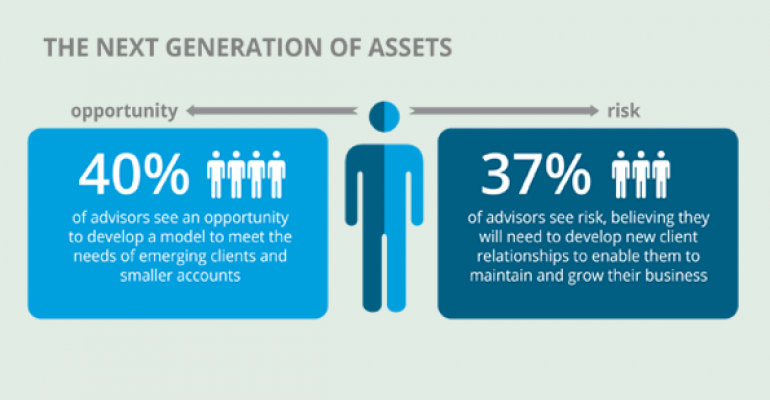Independent advisors are facing a myriad of challenges to their business, including emerging competition from “robo advisors” and an aging client population.
“Today’s independent advisors must make not one, but multiple strategic decisions to successfully face the changing environment around them and capture the potential opportunities ahead," says Bernie Clark, head of Schwab Advisor Services.
While some broker/dealer executives may be brushing aside the potential risk of emerging online advice platforms, almost half of RIAs are not quite as confident. In Schwab’s 2014 Independent Advisor Outlook Study—which surveyed 720 investment advisor firms—44 percent saw the online platforms as a threat, while 56 percent said “robo advisors” could supplement their current offerings and help grow the business.

Advisors should always focus on best-in-class technology, which is what many of these providers are offering, Clark says, adding that he doesn’t believe these platforms will replace the highest value-add service: financial planning. Instead, they may take over more of the basic asset allocation functions, making it easier for advisors to focus on the relationship, Clark says.
But while robo advisors may pose a challenge to advisors’ business, the bigger trial may be the looming client shift. According to Schwab, 40 percent of RIA clients are retired, while 30 percent are less then 10 years away. Moreover, 63 percent of retired clients are in the active withdraw phase.
“With this in mind, now is the time for independent advisors to actively focus on acquiring the next generation of clients and assets,” Clark says. With a $16 trillion wealth transfer expected to occur by 2050, Clark says 30- to 45-year-olds represent the best bet, especially as they already control $3.5 trillion in assets.
But advisors are still not sure. Over a third see the next generation as a business risk, saying they believe they will need to develop new relationships. Most aren’t regularly reaching out to their clients’ children, with the study showing 63 percent only have occasional or casual contact with children, while 19 percent rarely or never contact them.

